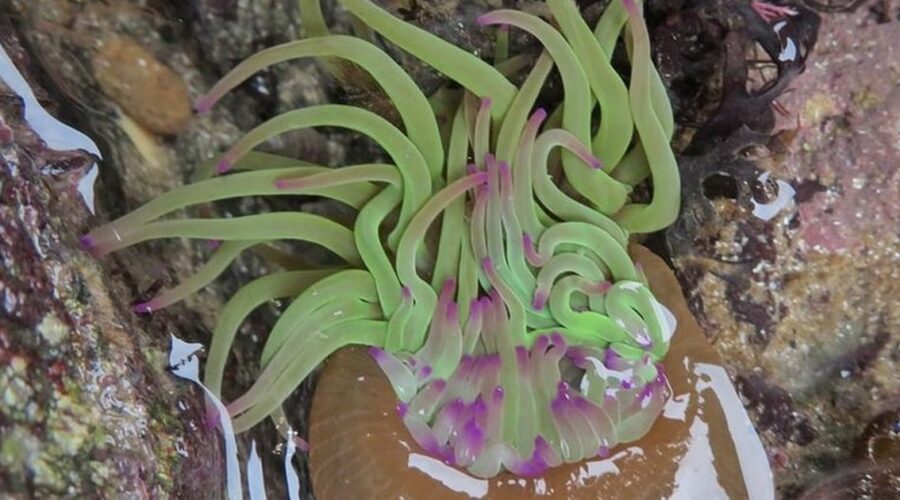Snake-like sea creature that causes ‘severe toxic skin reaction’ found in UK
A snake-like sea creature that causes a "severe toxic skin reaction" has washed up on a Brit beach, shocking passers by.
The snakelocks anemone, with its venomous green and purple tentacles, was found on Anglesey beach in North Wales, reports North Wales Live.
The animal, which was roughly the size of a human hand, was seen on Llanddwyn Beach over the weekend.
READ MORE: Eerie tale of boy who vanished on same stretch of river as Nicola Bulley 45 years ago
Snakelocks anemone is a common anemone infesting the shallow waters of the Mediterranean Sea and the North Atlantic Ocean.
It is known to cause severe skin reactions in thin skin areas, and young children are especially vulnerable according to an article in the Journal of Travel Medicine.
Anemones are often found on beaches around Anglesey, but the species found on Llanddwyn, with its distinctive colouring, is not as commonly-seen as others.
The name comes from its snake-like tentacles that it uses to capture prey such as prawns, small fish, and sea snails – and give humans a nasty sting if stepped upon.
Snakelocks anemone are also a delicacy in the Gulf of Cádiz region where they are known as 'ortiguillas de mar', which means 'little sea nettles' because they have stinging properties before they are cooked.
Mum killed by cows after being trampled to death during a holiday dog walk
To stay up to date with all the latest news, make sure you sign up to one of our newsletters here.
The whole animal is marinated in vinegar, coated in batter, and deep-fried in olive oil and is said to be similar in texture to a croquette but with a strong seafood taste.
Snakelocks anemone are found around the west of the UK and in the English Channel and live attached to rocks on the low shore and in shallow seas down to about 12m.
These tentacles are normally bright green with purple tips and are home to a kind of algae which produces energy from sunlight.
As such snakelocks anemones live in the sunniest spots on the shore and unlike other anemones, they rarely retract their tentacles in order to make the most of the sunlight.
READ NEXT:
Terrified cat owners fear 'phantom cat shaver' back as more trimmed Moggies show up
Perfectly frozen shark washes up on beach terrifying stunned passersby
Woodpecker hoarder's 317kg acorn stash crashes through wall of home in 'unreal' find
Source: Read Full Article




